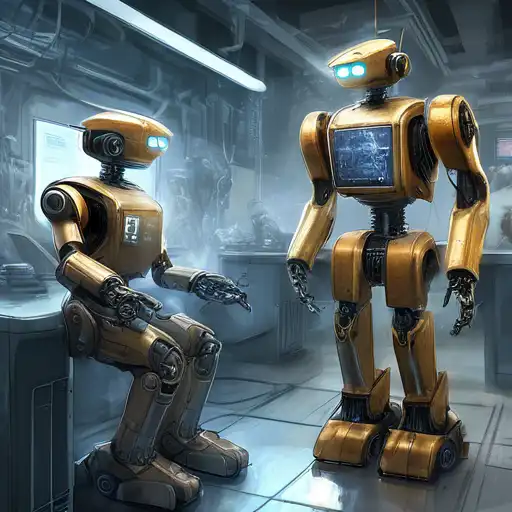The Moral Dilemmas of Autonomous Robots
In the rapidly evolving world of technology, autonomous robots represent a pinnacle of human achievement. However, as these machines become more integrated into our daily lives, the ethical implications of their autonomy cannot be overlooked. This article delves into the complex moral landscape surrounding self-operating machines, exploring the responsibilities of creators, the rights of machines, and the impact on society.
Understanding Autonomous Robots
Autonomous robots are machines capable of performing tasks without human intervention, thanks to advancements in artificial intelligence (AI) and machine learning. From self-driving cars to robotic assistants, these technologies promise to revolutionize industries and improve quality of life. Yet, with great power comes great responsibility, and the ethical considerations are vast.
The Ethical Framework
At the heart of the debate is the question of how to program ethical decision-making into robots. Should a self-driving car prioritize the safety of its passengers over pedestrians? How do we ensure that autonomous weapons adhere to international laws? These scenarios highlight the need for a robust ethical framework to guide the development and deployment of autonomous robots.
Creator Responsibility
Developers and engineers play a crucial role in embedding moral values into autonomous systems. It's imperative that ethical considerations are integrated into the design process, ensuring that robots act in ways that align with societal norms and values. This includes transparency in decision-making processes and accountability for outcomes.
Machine Rights and Personhood
As robots become more advanced, the question of whether they should have rights akin to human rights arises. If a machine can learn, adapt, and make decisions, does it deserve a form of legal personhood? This controversial topic challenges our traditional notions of consciousness and rights.
Impact on Society
The widespread adoption of autonomous robots will undoubtedly transform the job market, raising concerns about unemployment and economic inequality. Additionally, the potential for misuse in surveillance and warfare poses significant ethical dilemmas. It's essential to consider these societal impacts to ensure a future where technology benefits all.
Looking Ahead
The ethics of autonomous robots is a multifaceted issue that requires ongoing dialogue among technologists, ethicists, policymakers, and the public. By addressing these challenges head-on, we can harness the potential of autonomous robots while safeguarding human values and rights.
For further reading on the intersection of technology and ethics, explore our articles on Artificial Intelligence Ethics and The Future of Work.
